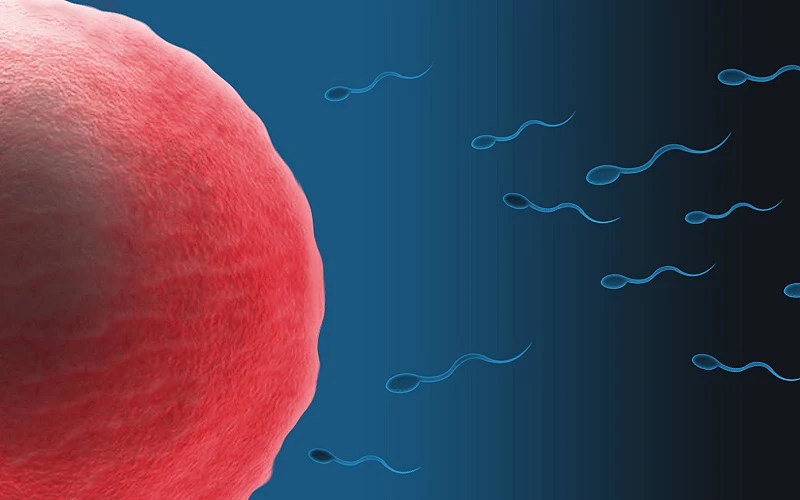Did you know that problems getting pregnant are common? In the US, on average ten percent of couples who are trying to conceive struggle. This means that for every 300 couple’s that get pregnant within a year, there will be 30 couples that struggle to conceive.
The good news is that for most couples with fertility problems, the issue can be resolved in one way or another. If you are struggling to get pregnant, be sure to schedule an appointment with your doctor. They can give you the necessary information you need on whether you can conceive naturally or if you should explore options like insemination at home or IVF.
If you’re struggling to get pregnant, you’re probably wondering what’s causing the problem. This depends, as there are a whole range of reasons why couples struggle to get pregnant.
With that in mind, to give you a better idea of why most couples struggle to get pregnant and how to deal with the problem, below is a list of the most common reasons for fertility issues.

Common Causes of Fertility Problems in Men
There are several factors that can cause fertility issues in men. Below are some of the most common.
Varicocele
Varicocele is one reason why men struggle with fertility. This is a condition where the veins on the testicles are too large, impacting the shape and health of the sperm.
Low Sperm Count or Motility Issues
Another cause of problems is when a man is making too few sperm or none at all.
Then there’s the fact that some sperm aren’t the right shape and because of this struggle to move properly. This makes conception an issue. In this instance, and when men are making too few sperm, IVF specialists recommend considering IVF, because it offers the best chance of conceiving.
Health Conditions
Some health conditions can also cause infertility in men, such as cystic fibrosis, for instance. Other times, an injury can impact a man’s ability to make healthy sperm.
Lifestyle Factors
Then there are lifestyle factors to take into account. Just like when it comes to the health of the rest of the body, a man’s sperm are impacted by his lifestyle.
For example, men that drink a lot of alcohol, are overweight, take drugs, smoke, work in a toxic environment, such as in a factory, can have unhealthy sperm.
Men who take a lot of hot baths are also at risk of problems with their sperm.
The good news is that by changing their lifestyle, a lot of men are able to create healthy sperm, boosting their fertility.

Common Causes of Fertility Problems in Women
Studies have shown that when it comes to women’s fertility issues, the most common cause is due to ovulation problems. Without ovulation, there’s no egg to be fertilized, and so, no chance of a baby being conceived.
Ovulation Issues
One of the main causes of problems with ovulation is Polycystic Ovary Syndrome, a problem caused by a hormone imbalance that prevents normal ovulation.
Another common cause of a problem with ovulation is Primary Ovarian Insufficiency. This is when the ovaries stop working as they should before the menopause occurs but isn’t linked to early menopause.
PID and Endometriosis
Other causes of female fertility problems include blocked fallopian tubes, normally caused by Pelvic Inflammatory Disease or Endometriosis. Problems with the uterus can also impact the chances of getting pregnant, as can fibroids – non-cancerous lumps of tissue.
Age
Just like men, a woman’s ability to get pregnant is also impacted by her lifestyle choices, and also, her age. Men tend to be fertile from their mid-teens to their senior years, whereas women tend to lose their ability to have a child in their 50s when the menopause starts.
Lifestyle Factors
As for lifestyle factors, the most common things that impact a woman’s ability to get pregnant include smoking, drinking large amounts of alcohol, stress, poor diet, and by being over or under weight. The good news is that by making lifestyle changes, most women can improve their fertility levels.
Poor Timing
When trying to conceive, timing is very important. In fact, it’s essential to know you’re choosing the right time to conceive. Many women are not familiar with their fertility window or the best time for having sex to increase their chances of conceiving.
The fertility window is a certain period of time when a woman releases an egg from one of her ovaries. Having intercourse during this time greatly increases your chances of getting pregnant.
Using an ovulation calendar makes finding your particular fertility window easy. The advanced ovulation calculator will provide you with all the information about your fertile window and the best time to conceive. For example, if your ovulation cycle lasts for 28 days, then the 10 days to 13 days of your period are usually your most fertile days.
Final Thoughts
So, there you have it, the most common reasons that couples struggle to get pregnant.
